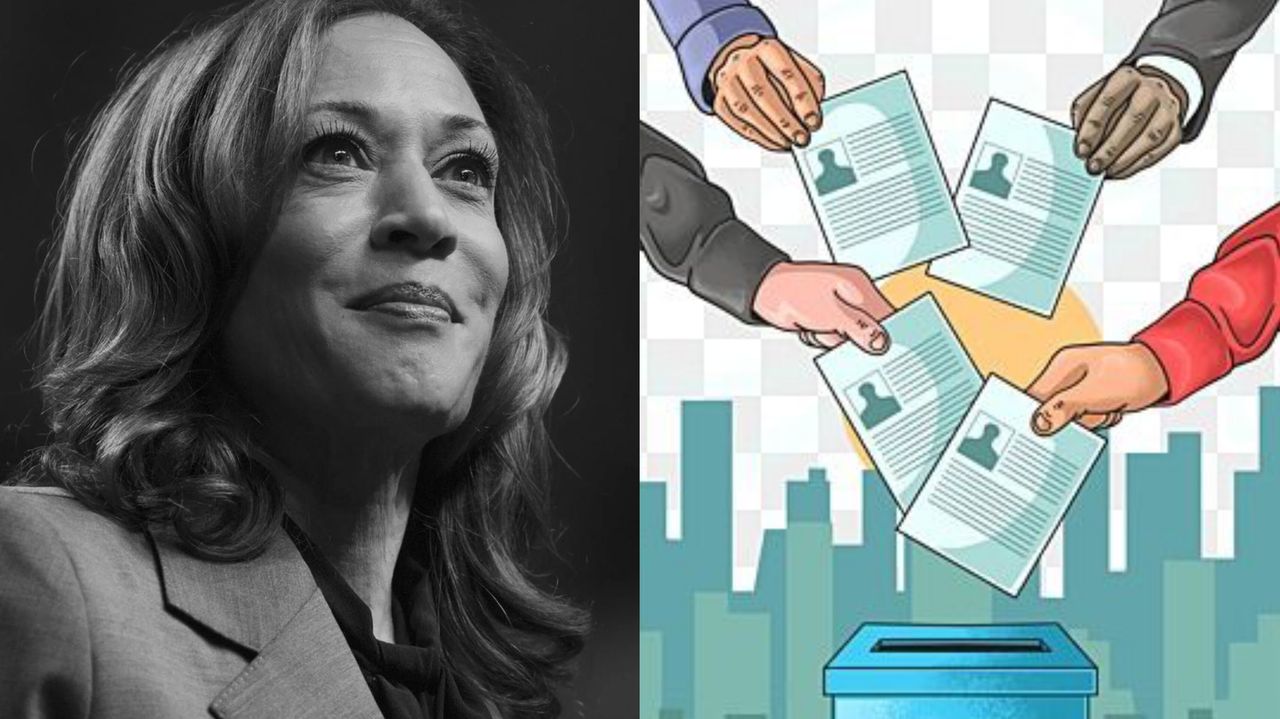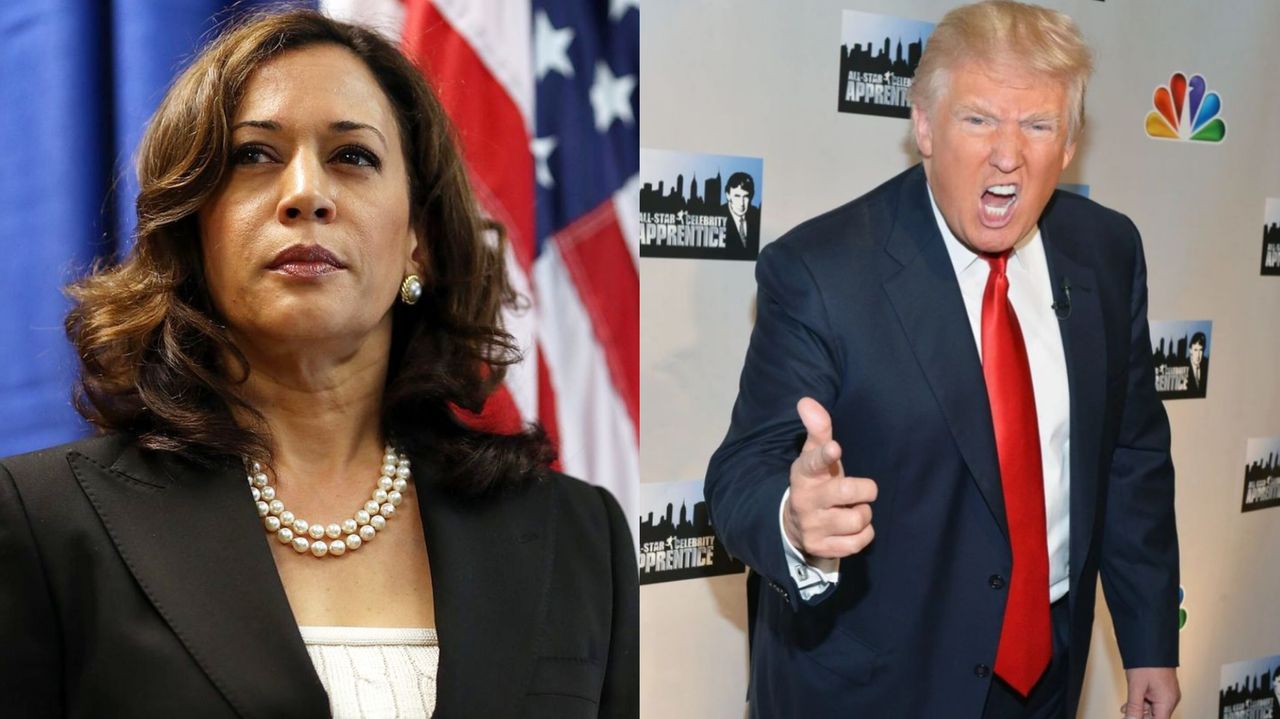By Tim Donner There are many ways to judge the state of a presidential or Senate race beyond the tsunami of polls we attempt to process in the...
Vous n'êtes pas connecté
- English
- Français
- عربي
- Español
- Deutsch
- Português
- русский язык
- Català
- Italiano
- Nederlands, Vlaams
- Norsk
- فارسی
- বাংলা
- اردو
- Azərbaycan dili
- Bahasa Indonesia
- Հայերեն
- Ελληνικά
- Bosanski jezik
- українська мова
- Íslenska
- Türkmen, Түркмен
- Türkçe
- Shqip
- Eesti keel
- magyar
- Қазақ тілі
- Kalaallisut ; kalaallit oqaasii
- Lietuvių kalba
- Latviešu valoda
- македонски јазик
- Монгол
- Bahasa Melayu ; بهاس ملايو
- ဗမာစာ
- Slovenščina
- тоҷикӣ ; toğikī ; تاجیکی
- ไทย
- O'zbek ; Ўзбек ; أۇزبېك
- Tiếng Việt
- ភាសាខ្មែរ
- རྫོང་ཁ
- Soomaaliga ; af Soomaali
Rubriques :
 Maroc - EURASIAREVIEW.COM - A la une - 09/Sep 23:32
Maroc - EURASIAREVIEW.COM - A la une - 09/Sep 23:32
Harris’s ‘Joy’ Would Cost US Dearly – OpEd
By Alexander William Salter American progressives are out of ideas. Instead of a bold economic agenda, all they have to offer is reruns of policy failures. Vice President Kamala Harris’s recent proposals are notable examples. Behind the facade ofjoyhides an alarming indifference to the immense costs her schemes would create if she wins the presidency.Economistshave a duty to point out just how destructive these proposals are. Exhibit A is her call forprice controlson groceries. Ignore the rhetorical sleight-of-hand from the campaign and its defenders, who insist they only want to clamp down on “price gouging.” This is clearly a call for the government tocrack downon retailers who are selling food at any price Harris and other progressive elites deem excessive. Perhaps no policy has a record as consistently bad as mandatory price caps. WhileEcon 101doesn’t always tell the full story, it does an admirable job in this case. Expect shortages, portion shrinkages, and discriminatory sales practices if Harris gets her way. Price controls are such bad policy that other prominent Democrats almost immediatelypromisedthat they will never happen. Yet the very fact Harris proposed them is appalling. It is too dangerous to give her the benefit of the doubt. Next is hergrowth-killing tax plan. Harris isamong thosecalling for the rich to “pay their fair share.” For starters, the rich tax skimps narrative is ridiculous. The top one percent of income earners already pay more than 40 percent of all federal income taxes. Yet she wants to raise rates anyway. This will dampen incentives to produce and innovate. The same is true for corporate taxes. Raising the corporate tax rate from 21 percent to 28 percent wouldinhibit capital formation, resulting in smaller returns for owners, higher prices for consumers, and lower wages for workers. This last point should dispel the myth that Harris and the progressive elite are concerned about economic opportunity. Perhaps most egregious is her endorsement of President Biden’s plan to tax unrealized capital gains. Just look at the awful incentives this policy would create. Instead of keeping their wealth in capital markets, bearing risk and facilitating growth, those experiencing unrealized capital gains would likely have to divest their position to discharge their tax liability. This policy seems designed to dry up capital markets, or else provide a beachhead for future direct wealth seizures by the government. Those objecting that the policy only applies to the hyper-rich (those with a net worth of more than $100 million) are clearly unfamiliar with thehistoryof the income tax. Once upon a time, only high income earnerspaid any taxat all. Now the IRS has its tendrilseverywhere. The same will eventually be true withunrealized capital gains, unless we root out this weed right away. Lastly, her so-calledhome affordability planis rubbish. Harris wants to give new homebuyers up to $25,000 in “down payment assistance.” I’m sure that phrase poll-tested well, but a subsidy by any other name is still a subsidy. If you give a family $25,000 to help purchase a home, they’ll be much better off. But the gains are much smaller if you give it to many families. Harris’s proposal would boost market demand, further driving up housing prices. Keep in mind thathousing supplyis generally much less responsive to price changes thanhousing demand. New home construction is subject to high fixed costs, significant time to build, andzoning lawsand other local restrictions. The implication is that homebuyers won’t get much of the benefit of the subsidy, since prices will go up by much more than the quantity of homes. If your goal is transferring wealth to homebuilders and existing homeowners, Harris’s plan is great. But if your goal is making housing more affordable, it’s terrible. She keeps piling on examples. Herstated desireto throw 180 million Americans off their private health insurance plans, her eagerness to impose massive regulatory costs on energy producers, and her enthusiasm for hamstringing law enforcement come easily to mind. The result is apolitical-economic model guaranteed to induce malaise. Vice President Harris’s ongoing audition for Enfeebler-in-Chief proves the American left needs a hard reset. Otherwise, the “opportunity economy” they claim to want will never materialize. About the author: Alexander William Salter is the Georgie G. Snyder Associate Professor of Economics in the Rawls College of Business and the Comparative Economics Research Fellow with the Free Market Institute, both at Texas Tech University. He is a co-author of Money and the Rule of Law: Generality and Predictability in Monetary Institutions, published by Cambridge University Press. Source: This article was published at AIER
Articles similaires
Trump’s Latest Tariff Plan Just Replaces One Tax With Another – OpEd
By Ryan McMaken Donald Trump on Mondayfloated the ideathat he might seek to replace the federal income tax with federal taxes on imports—also...
Here's how much richer the world's wealthiest men are after Trump's victory
November 5 wasn't just a good day for President-elect Donald Trump — it was also a big win for the world's wealthiest men, according to a new...
The Harris Paradox: The Hidden Patterns in US Election Results
Washington: In many of the states, Democratic Senate candidates outperformed Kamala Harris, despite her loss in the presidential race. For...
Argentina: Nine Months Of Javier Milei As President – Analysis
By Antony P. Mueller In office for just over nine months, Argentine President Javier Milei continues to face enormous economic and political...
Inside The Metro Vancouver DCCs And The Potential Housing Price Increases
The discussion around development cost charges (DCCs) continues to gain momentum in British Columbia as a result of the letter-writing campaign a...
Vital Dissentions Driving Voter Decisions in US Elections
From taxes to immigration to abortion, here are 5 critical issues at stake as Donald Trump and Kamala Harris enter the last stretch in the race for...
US Presidential Election: Key Policy Differences Between Kamala Harris And Donald Trump – OpEd
As the U.S. presidential election on November 5 approaches, the policy differences between Kamala Harris and Donald Trump are becoming increasingly...
The Most Influential People In BC Real Estate Right Now
Lists of most influential people are never comprehensive, but they operate to bring a few key players into the light. Here we’ve compiled a list...
Walz mocks Trump for not knowing ‘how a tariff works’ as ‘massive’ price hikes loom
American companies are not waiting for the results from next week's Election Day to get a jump on hiking prices should Donald Trump win the...
Les derniers communiqués
-
Adobe Brings Conversational AI to Trillions of PDFs with the New AI Assistant in Reader and Acrobat
Adobe - 21/02/2024
-
Laura Frigenti takes the Helm as Chief Executive Officer of the Global Partnership for Education
Global Partnership for Education - 05/12/2022





